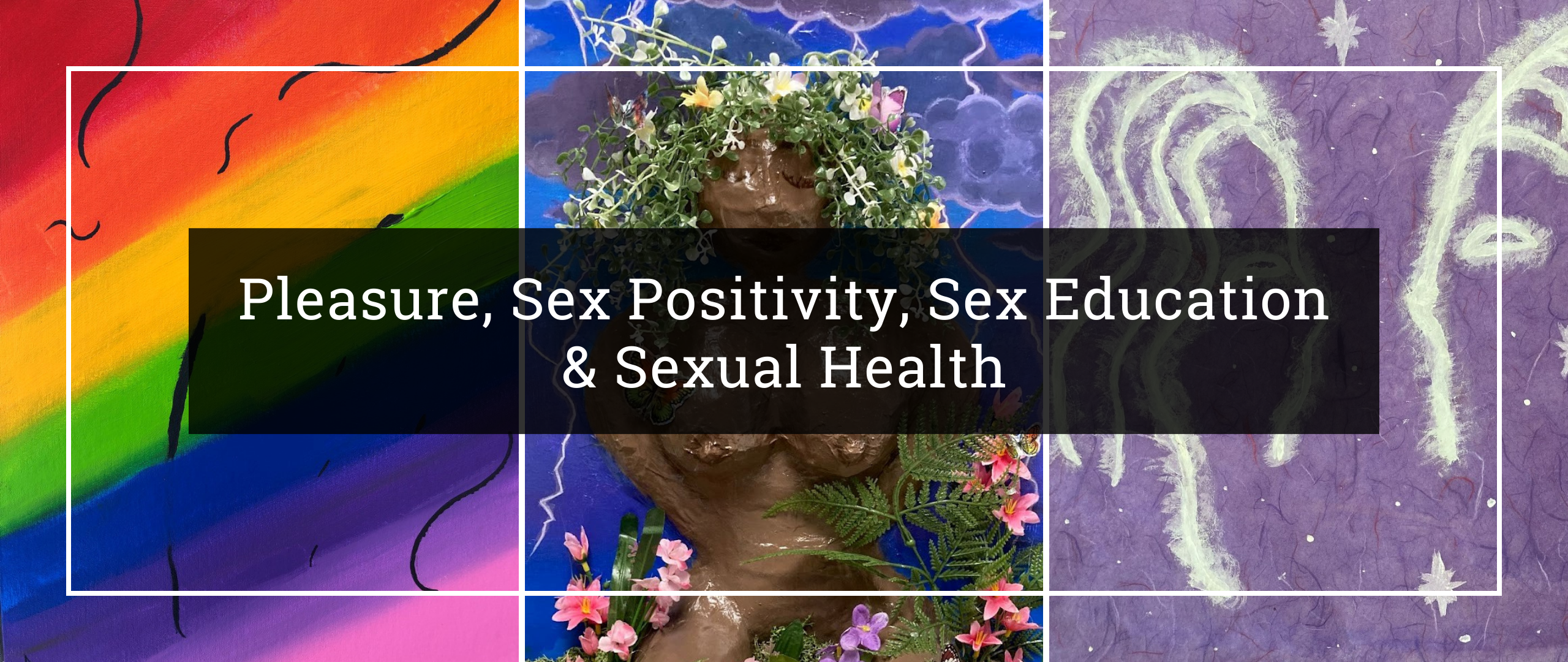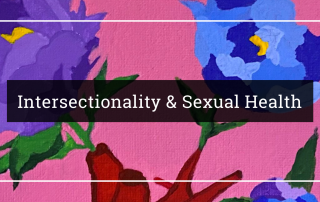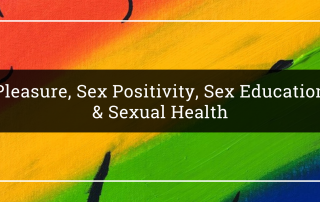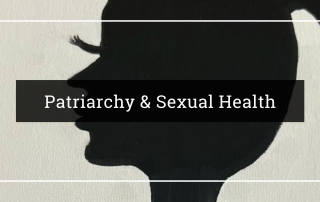
Written and researched by Tomei Kuehl
Accompanying artworks selected in partnership with Talia Cardin, Youth-facilitator to the Youth Sexual Health Program Board
Pleasure:
“Pleasure activism is the work we do to reclaim our whole, happy, and satisfiable selves from the impacts, delusions, and limitations of oppression and/or supremacy.”
– Definition provided by adrienne maree brown, Pleasure Activism
Sex Positivity:
“Sex positivity is about the process of unlearning shame and reframing the healing of shame….Sex positivity recognizes the ways power has been used over people without their consent and to oppress them. To be sex positive is to examine power and honor the way we are all fumbling with understanding our own power and how it is a shapeshifter in various situations. To be sex positive is to be led by those most impacted, have clear principles and boundaries, and to strategically use our power in service to collective liberation.”
– Definition provided by Bianca I. Laureno in an article for Prism, “What is sex positivity?”
Liberatory Sex Education
“Education either functions as an instrument which is used to facilitate integration of the younger generation into the logic of the present system and bring about conformity or it becomes the practice of freedom, the means by which men and women deal critically and creatively with reality and discover how to participate in the transformation of their world.”
– Paolo Freire, Brazilian educator, and philosopher
Pleasure, sex positivity, and liberatory sex education are the possibilities that live outside the existing systems. The existing sexuality education curriculum ignores desire and pleasure and instead focuses on disease prevention and sexual violence prevention (Fine, 1988). According to Fine, “a genuine discourse of desire would invite adolescents to explore what feels good and bad, desirable and undesirable, grounded in experiences, needs, and limits.”
Many young people desire their sex education to be meaningful and useful. A survey of students needs related to sexual health found that the topic they most wanted to know about was ‘how to make sexual activity more enjoyable for both partners’ (Allen & Carmody, 2012). Creating spaces within sex education can legitimize young people’s sexual desire and pleasure within a school culture and does not mean that young people must, or will use these spaces, but would no longer deny young people access (Allen, 2005). Obstacles to sex education often focus on the policy, school, and parent levels of schooling. And there is a caution in pushing a “liberal” perspective around sexuality education because of the absence of an analysis of the ways that progressive curriculum continues to perpetuate historical norms and isms (Garcia & Fields, 2017). Education, and society, often fails to listen to the voices, desires, and pleasures that young people are interested in and instead focuses on what adults and educators deem good sex education. It is time to listen to young people.
References
- Allen, L. 2005. Sexual subjects: Young people, sexuality and education. Houndmills: Palgrave Macmillan.
- Allen, Louisa & Carmody, Moira. (2012). ‘Pleasure Has No Passport’: Re-visiting the Potential of Pleasure in Sexuality Education. Sex Education. 12. 455-468. 10.1080/14681811.2012.677208.
- Garcia, Lorena & Fields, Jessica (2017). Renewed commitments in a time of vigilance: sexuality education in the USA, Sex Education, 17:4, 471-481, DOI: 10.1080/14681811.2017.1285387




